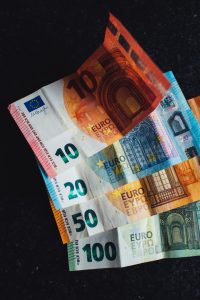Forex trading has become more popular than ever before, with millions of traders globally. Forex brokers play a vital role in the forex market, acting as an intermediary between traders and the interbank market. But have you ever wondered how much forex brokers make? This article will delve into the various ways forex brokers make money and how much they earn.
Forex brokers make money in several ways. The primary way they make money is through spreads, which are the difference between the bid and ask prices. The bid price is the price at which a trader can sell a currency, while the ask price is the price at which they can buy. The spread is the commission that the broker charges for facilitating the trade. The spread can vary from broker to broker, and it is usually measured in pips, which is the smallest unit of price change in a currency pair.
The spread is the main source of revenue for forex brokers. Brokers usually offer fixed or variable spreads. With fixed spreads, the broker charges a fixed spread regardless of market conditions. With variable spreads, the spread can widen or narrow depending on market volatility. Brokers that offer variable spreads usually charge a lower spread during low volatility periods and a higher spread during high volatility periods.
Forex brokers can also make money through commissions. Some brokers charge a commission on top of the spread, usually as a percentage of the trade’s value. This is more common in the case of ECN (Electronic Communication Network) brokers, which offer direct access to the interbank market. ECN brokers charge a commission because they do not make money from the spread, which is determined by the interbank market.
Forex brokers can also make money through overnight financing charges or rollover fees. These fees are charged when traders hold positions overnight or over the weekend. The fees are calculated based on the interest rate differential between the two currencies in the currency pair. If the currency being bought has a higher interest rate than the currency being sold, the trader receives a positive swap rate. If the currency being sold has a higher interest rate than the currency being bought, the trader pays a negative swap rate.
Forex brokers can also make money through trading against their clients, also known as market making. In this model, the broker takes the opposite position of their clients, effectively acting as the counterparty to the trade. This means that if the client makes a profit, the broker makes a loss, and vice versa. Market making is controversial because it creates a conflict of interest between the broker and their clients. Brokers that engage in market making usually do not charge a commission but make money from the spread and the losses of their clients.
So, how much do forex brokers make? The answer varies depending on the broker’s business model, trading volume, and the number of clients they have. Forex brokers that offer fixed spreads usually make less money than brokers that offer variable spreads or ECN brokers that charge a commission. The average spread for major currency pairs is around 1-2 pips, which means that brokers make around $10-$20 for every standard lot (100,000 units) traded.
Overnight financing charges or rollover fees can also add to a broker’s revenue. The amount charged depends on the interest rate differential between the two currencies in the currency pair and the size of the position. Forex brokers can charge anywhere from a few cents to a few dollars per lot traded.
Brokers that engage in market making can make more money than brokers that only make money from spreads and commissions. Market makers can earn money from the losses of their clients, which can be substantial if the clients are inexperienced traders. However, market making can also be risky because the broker is exposed to the market’s fluctuations.
In conclusion, forex brokers make money from spreads, commissions, overnight financing charges, and trading against their clients. The amount of money they make varies depending on the broker’s business model, trading volume, and the number of clients they have. Forex trading is a high-risk investment, and traders should only trade with regulated brokers that offer transparent pricing and fair trading conditions.





